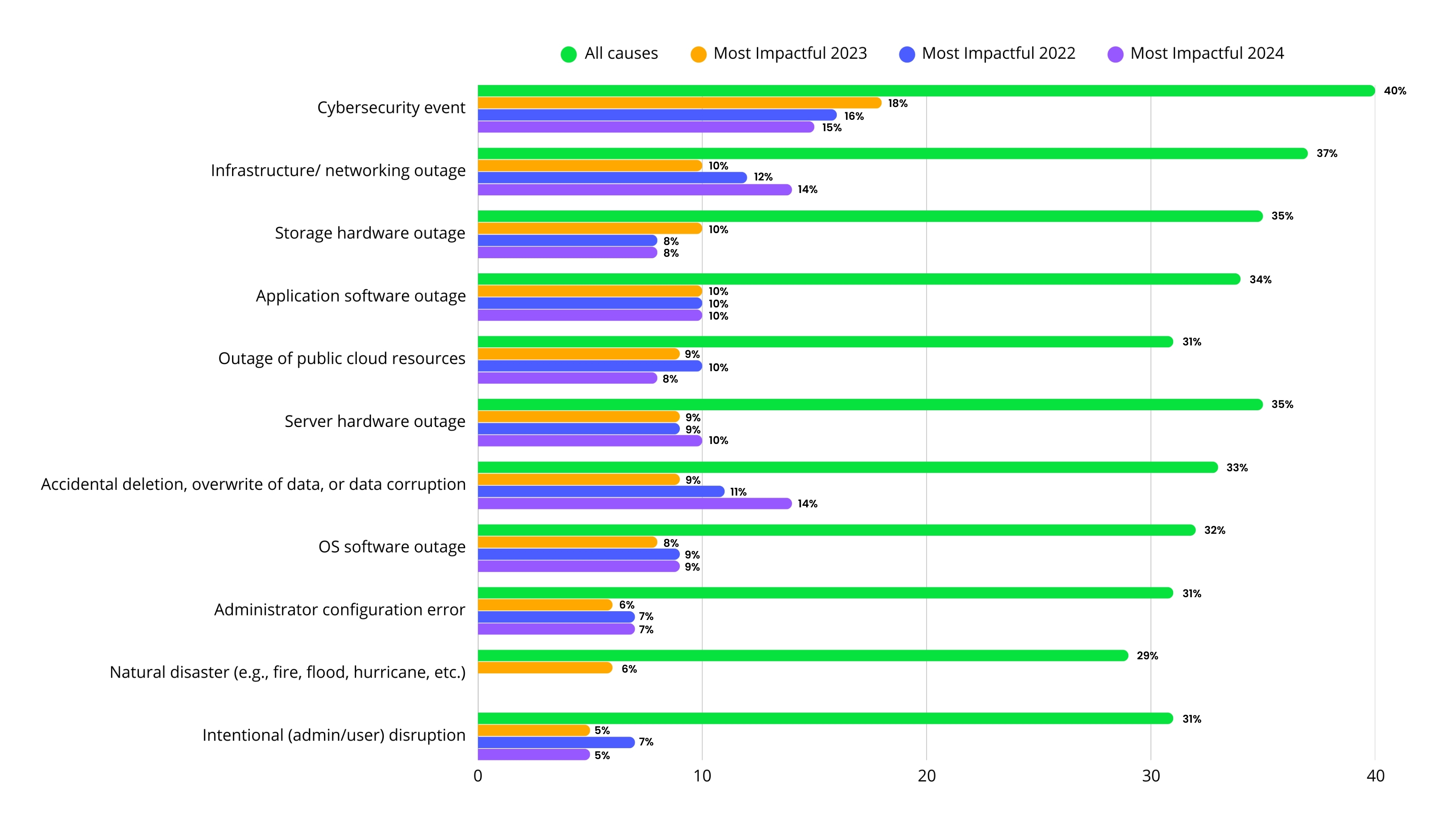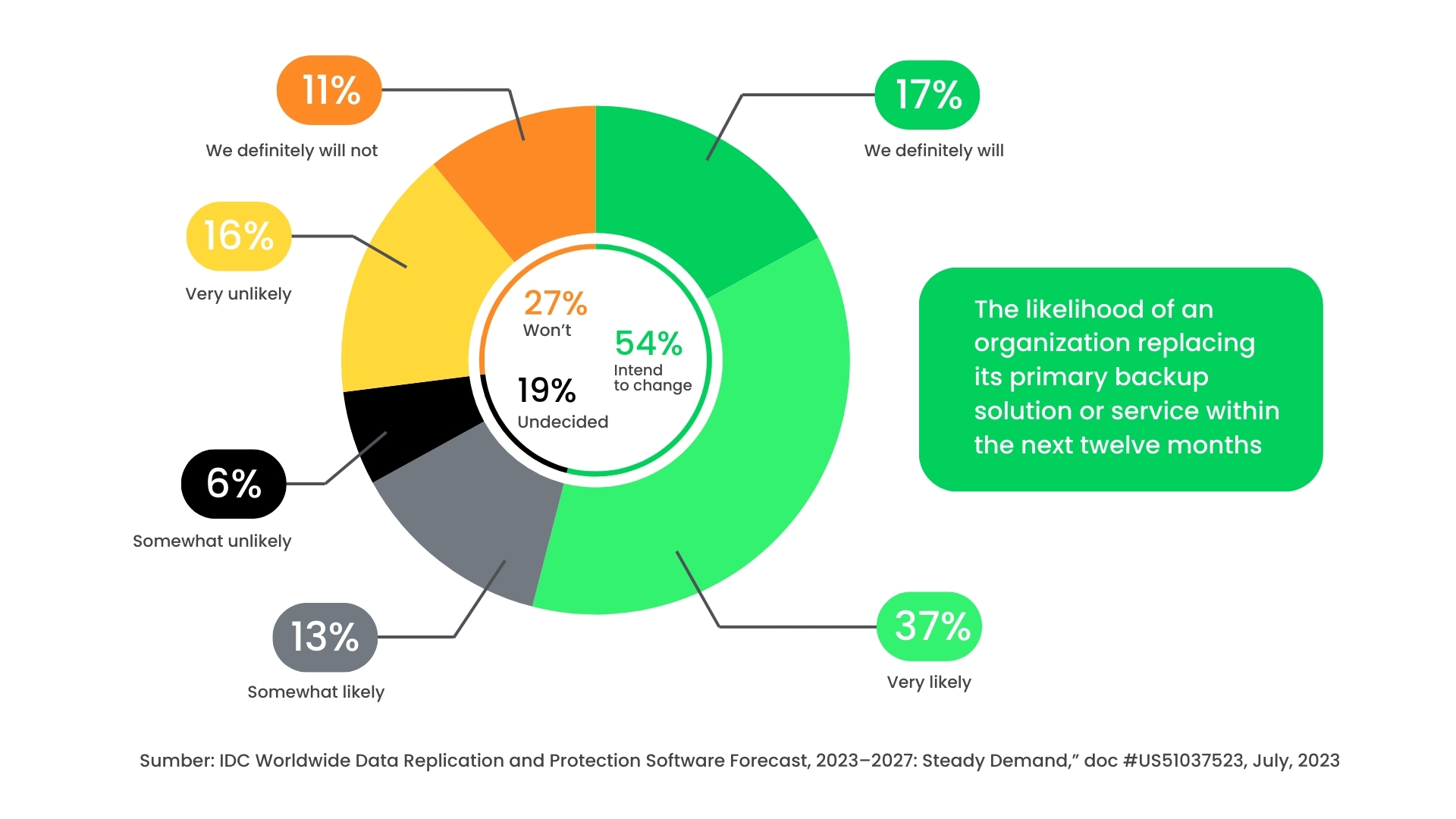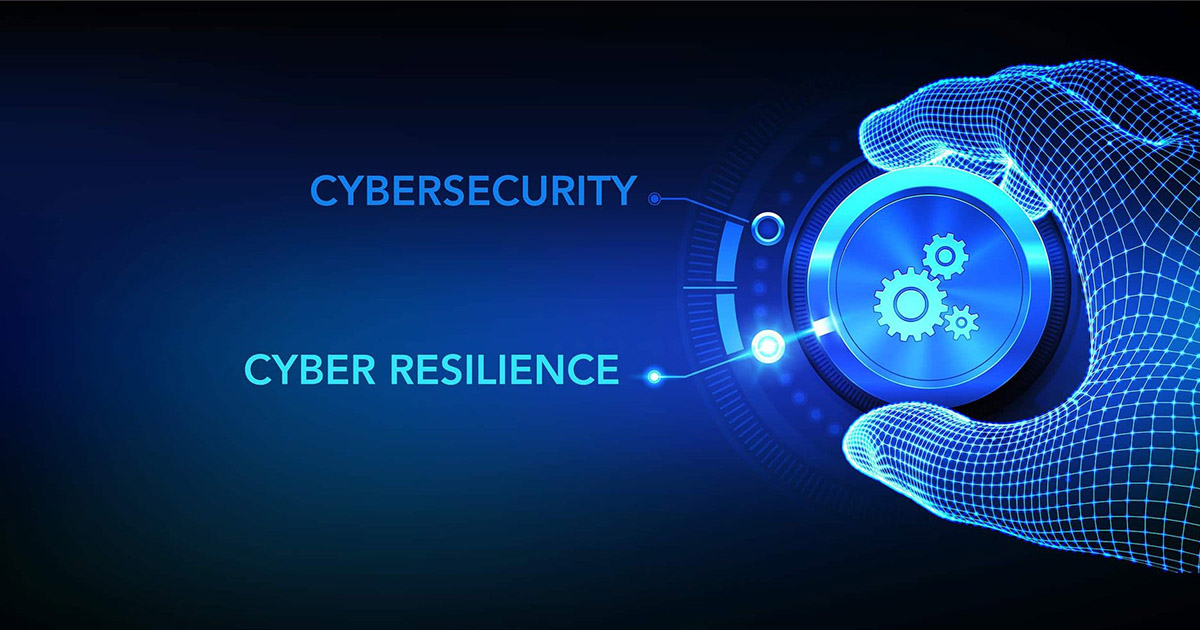In today's digital era, data loss remains a significant concern for many organizations. Despite the increasing adoption of cloud services and backup solutions, incidents of data loss continue to occur. This raises questions about the reliability of existing backup solutions.
Veeam Data Protection Trends Report 2024 reveals that although companies are becoming more aware of the importance of data backup, many still face significant challenges in achieving fast and reliable data recovery. This article will discuss data loss trends, reasons behind doubts about backup solutions, risks of not having backups, and best solutions to enhance data resilience.
1. Data Loss in 2024-2025: A Persistent Issue

According to the Veeam Data Protection Trends Report 2024, cyberattacks such as ransomware remain the leading cause of data loss and business disruptions. Although many organizations have adopted modern backup technologies, only a small percentage are confident they can recover from an attack in less than a week. This indicates that merely having backups is insufficient; companies must ensure their solutions are truly effective and reliable in emergencies.
2. Why Are Many Companies Doubtful About Backup Solutions?

Despite the increasing sophistication of backup solutions, several reasons contribute to companies' doubts about using them:
- Lack of trust in existing systems: Many organizations have experienced data loss despite having backup systems in place.
- High costs: Investments in backup solutions are often considered expensive, especially for small and medium-sized businesses.
- Complex implementation: Migration and integration processes are often perceived as difficult and time-consuming.
- Recovery times not meeting expectations: In many cases, data recovery takes longer than anticipated.
According to a Veeam survey, 92% of organizations plan to increase their data protection budgets in 2024, yet they continue to seek more effective and easily implementable solutions.
3. Significant Risks of Not Having Reliable Backups

Without robust backup systems, companies face various risks that can seriously impact business continuity. These risks not only involve the loss of valuable data but can also disrupt daily operations, damage the company's reputation, and lead to significant financial losses. Therefore, it is crucial for every organization to understand the potential threats arising from the lack of an effective backup strategy.
- Permanent data loss, which can result in financial losses and harm to business reputation.
- Prolonged downtime, disrupting business operations and customer satisfaction.
- High recovery costs, especially if the company has to pay ransoms due to ransomware attacks.
Cyberattacks are currently one of the main causes of business disruptions, compelling companies to be more diligent in ensuring their backup strategies are truly reliable in facing such threats.
4. Emerging Trend: Data Resilience and Cyber Resilience Becoming More Interconnected

In an increasingly digitalized world, data resilience and cyber resilience are inseparable. Companies with strong backup and data recovery strategies tend to be better prepared to face cyber threats. Conversely, weaknesses in data resilience can increase the risk of cyberattacks.
Investing in data protection is no longer optional but has become a primary necessity for companies to ensure business continuity and reduce the risk of data loss due to evolving cyber threats.
5. Solutions to Enhance Data Resilience
To address these challenges, companies need to implement appropriate strategies to keep data secure and recoverable quickly in the event of an incident. Here are some steps that can be taken:
- Regular backups: Ensure all critical data is consistently updated.
- Utilize encryption technology: Keep data secure from unauthorized access.
- Conduct regular recovery tests: Verify that backups are truly usable when needed.
- Train IT teams and employees: Ensure they understand the importance of data protection.
- Implement the 3-2-1 backup strategy: Maintain three copies of data, on two different media, with one copy stored offsite.
Conclusion
Data loss remains a significant threat to many organizations, despite advancements in backup technology. Doubts about backup solutions often stem from poor experiences with slow recovery times, high costs, and unreliable systems.
However, by choosing the right backup solutions and implementing strong data resilience strategies, companies can mitigate the risk of data loss, enhance cybersecurity, and ensure long-term business continuity.
Does your business have a robust backup system to face the threat of data loss?
If you need more information or wish to consult about backup solutions and data resilience strategies, do not hesitate to contact us.
Last Updated
May 5, 2025
Category
Data Protection , Backup Solutions
Share This
On This Page
Contact us for
Free Consultation!
Share your challenges, and we'll provide the best solutions for your business, Connecting with us is as simple as clicking a button, and let us come to you.











